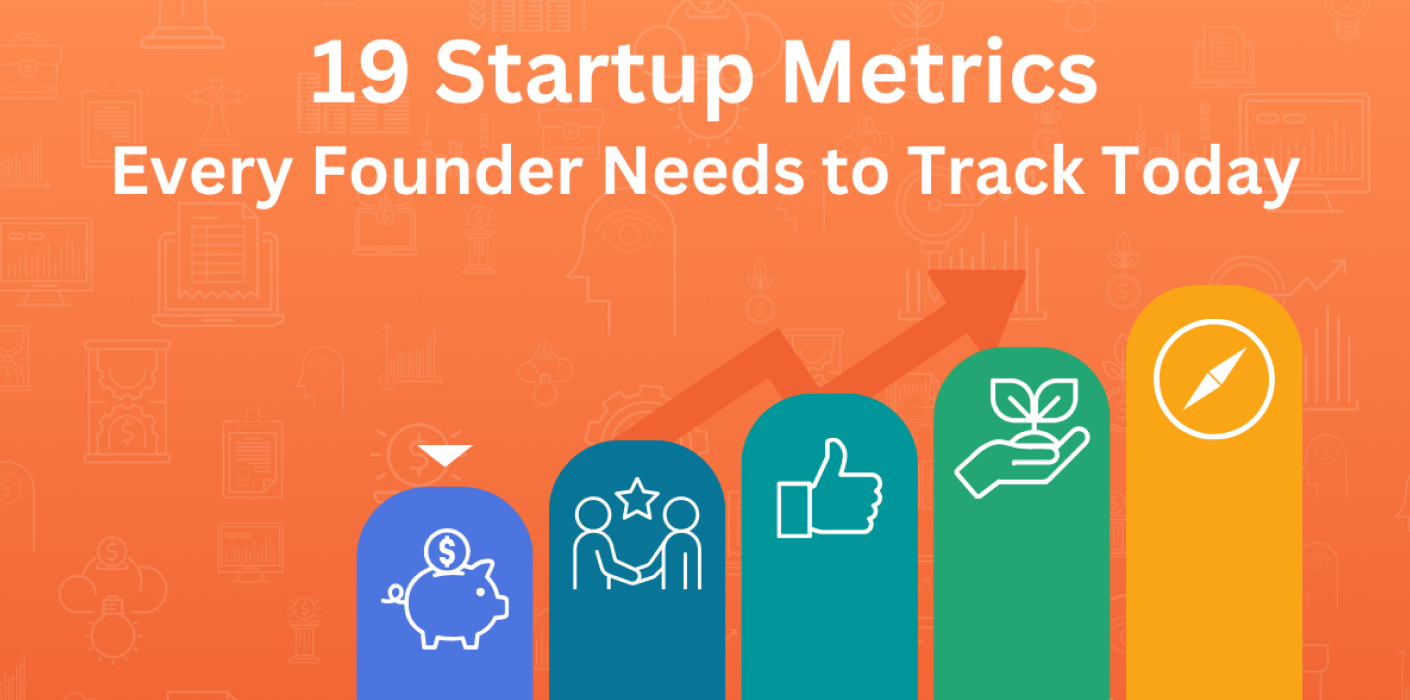Startup metrics aren’t just about speed they’re about direction. Growth doesn’t mean anything if you’re chasing the wrong numbers.
That’s why understanding and tracking the right startup metrics is non-negotiable if you’re serious about building something that scales. From acquisition to retention to revenue, these are the data points that drive real decisions, not just pretty graphs.
Let’s break down the startup metrics that actually matter in 2025.
Why Metrics Matter in a Startup
You don’t have time (or budget) to waste. Every marketing test, product feature, or sales call needs to earn its keep.
Startup metrics help you:
- Measure traction and product-market fit
- Forecast growth and raise capital
- Make faster, smarter business decisions
Without clear metrics, you’re guessing. And guessing kills startups.
🚀 The Essential Startup Metrics You Should Be Tracking
1. Acquisition Metrics
These help you understand how well you’re attracting new users or customers.
1.1 Customer Acquisition Cost (CAC)
How much you spend to acquire a new customer.
1.2 Conversion Rate
Percentage of leads or visitors that become customers.
1.3 Traffic by Source
Break down where users are coming from (organic, paid, referral, social).
1.4 Trial-to-Paid Conversion Rate
For SaaS/startup products with free trials, this is key.
2. Retention Metrics
Retention beats acquisition every time. Here’s how to measure stickiness.
2.1 Churn Rate
Percentage of users who stop using your product/service.
2.2 Customer Lifetime Value (CLTV or LTV)
How much a customer is worth over the long term.
2.3 Net Promoter Score (NPS)
Measures user satisfaction and loyalty.
2.4 DAU/WAU/MAU (Daily/Weekly/Monthly Active Users)
Great for apps and recurring-use products.
3. Revenue Metrics
Because funding is cool, but cash flow is cooler.
3.1 Monthly Recurring Revenue (MRR)
Your predictable revenue stream from subscriptions or recurring purchases.
3.2 Annual Recurring Revenue (ARR)
The yearly version of MRR.
3.3 Burn Rate
How fast you’re spending money. Crucial for runway planning.
3.4 Gross Margin
Revenue minus cost of goods sold. Shows financial efficiency.
3.5 Revenue Growth Rate
How quickly your revenue is increasing month-over-month.
4. Activation & Engagement Metrics
Understand how users experience your product in the first moments.
4.1 Time to First Value (TTFV)
How quickly users see value from your product.
4.2 Feature Adoption Rate
Which features users are actually using.
4.3 Onboarding Completion Rate
Shows how well your activation flow performs.
How to Use These Metrics to Scale Smarter
It’s not about tracking everything—it’s about tracking the right things.
Focus on:
- Reducing CAC
- Increasing LTV
- Optimising for retention and engagement
- Knowing your runway and growth rate
Use these metrics to guide hiring, funding, and marketing spend.
Final Thoughts: Stop Guessing. Start Scaling.
Most startups don’t fail because they run out of money. They fail because they don’t know why they’re winning or losing.
APE Marketing helps ambitious founders cut through the noise and focus on the metrics that actually move the needle.
You’re not here to build something fast. You’re here to build something that lasts. Let’s make it happen.


